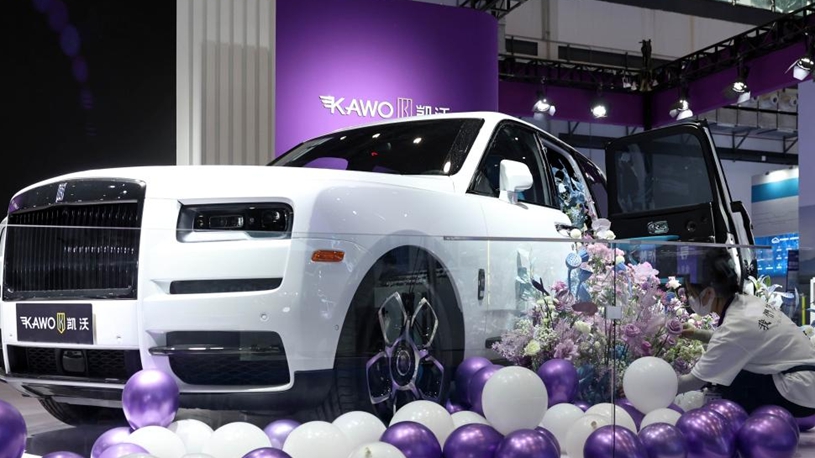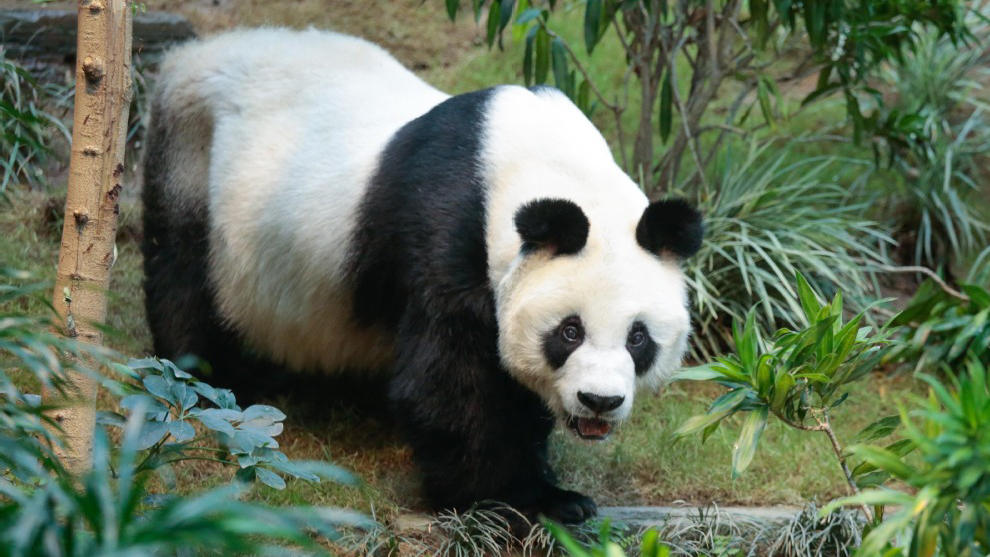Car boot sales, livestreaming boost consumption amid epidemic
NANJING, July 26 (Xinhua) -- As night fell on the dog days of summer, a dozen cars arrived at a bustling commercial plaza in the eastern Chinese city of Nanjing, parking in a neat line. The drivers eagerly unlocked their car trunks, unfurling little shiny banners that read "Hello" and "Welcome".
Despite light shows and live bands, this was not an auto show. It was a car boot sale, in which people use their car trunks (known as "boots" in the UK) as mobile market stalls, selling various goods, from expensive antiques to handmade toys and food.
"It's absolutely a trendy way to spur consumption amid the epidemic," said Dong Xing, a 26-year-old bank teller in Nanjing, who has been selling handmade cakes, coffee and iced drinks from the back of his SUV.
"I wanted to give it a try, as the idea of car boot sales has been so widely embraced on the internet," Dong said.
Since he started, Dong has set up his mobile stall at least three times a week, and due to word-of-mouth, it has attracted many regular customers.
As the COVID-19 epidemic has been brought under control, many cities in China have seen a robust recovery of the nighttime economy, and car boot sales have injected new vitality into nighttime consumption.
"I love the atmosphere, and you can have a nice time chatting with someone else," said Wang Yanfen, a frequent customer of the car boot sale. "Shopping while socializing is really a cool idea."
"Under the necessary epidemic prevention measures, we have been supporting these new types of business activities," said Zhang Zhichao, director of Nanjing's commerce department, noting that many commercial plazas have offered space for car boot sales and introduced night-themed activities to stimulate consumption.
In addition to car boot sales, creative selling methods, including livestreaming on short-video platforms, have also been applied to agricultural products harvested during the summer season.
In a peach orchard of Yangshan Township, known as the "hometown of honey peaches" in east China, vloggers have been demonstrating how to "drink" honey peaches through straws while persuading audiences to order online.
In the face of several epidemic flare-ups, the local government has encouraged peach growers to go online in search of sales, as many offline transactions have been canceled.
"The epidemic has hardly affected our sales of honey peaches," said Hua Chen, a peach grower and also a retailer in Yangshan who helps local villagers sell peaches on short-video platforms.
"We will invite some celebrities and singers to increase the exposure of our peaches, offsetting the impact of the epidemic," Hua said, adding that his team can achieve daily sales of more than 100,000 yuan (about 14,805 U.S. dollars), on average, during the harvest season.
"To boost sales, we have conducted random nucleic acid testing of the peaches and their packages to ensure the safety of the fruit, and choose deliverymen living in Yangshan to reduce the risk of infection," said Gao Jia, head of Yangshan Township.
In April this year, China unveiled guidelines on tapping the country's consumption potential and promoting consumption recovery, with detailed measures to tackle short-term bottlenecks and boost longer-term consumption vitality.
According to the National Bureau of Statistics, consumption has improved as retail sales of consumer goods rallied 3.1 percent year on year in June, following year-on-year drops in April and May. The recovery is expected to continue, with China on a trajectory of consumption expansion, upgrades, and innovations.
Photos
Related Stories
- Beijing issues coupons to boost catering consumption
- China unveils measures to bolster employment, consumption
- China rolls out measures to spur automobile consumption, circulation
- Chinese rural areas embrace new opportunities with growing consumption of big-ticket items
- Promotional measures in China's Guangxi boost consumption amid epidemic
Copyright © 2022 People's Daily Online. All Rights Reserved.









